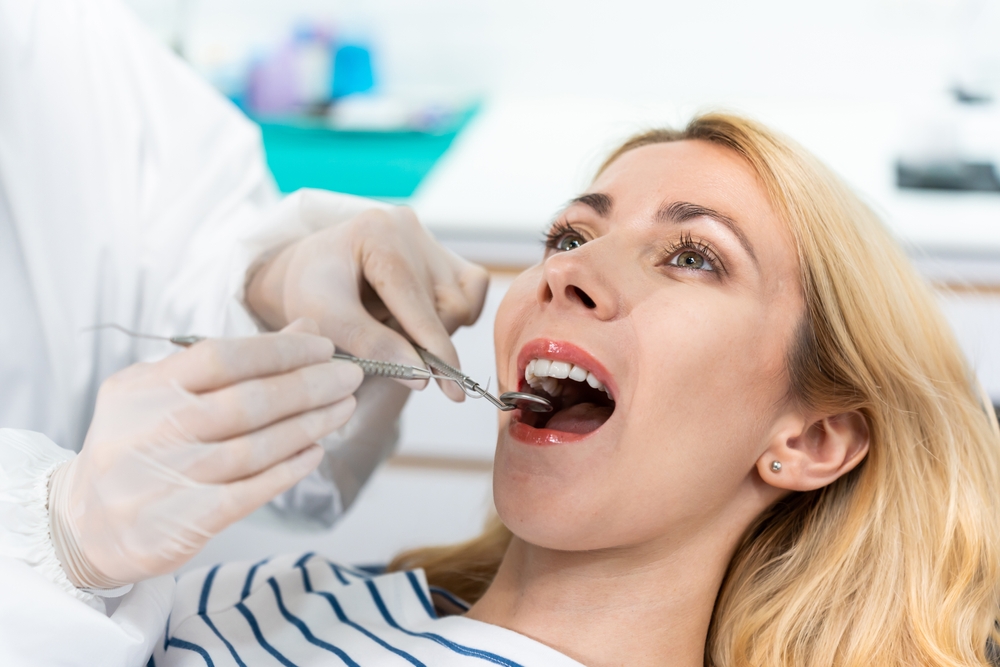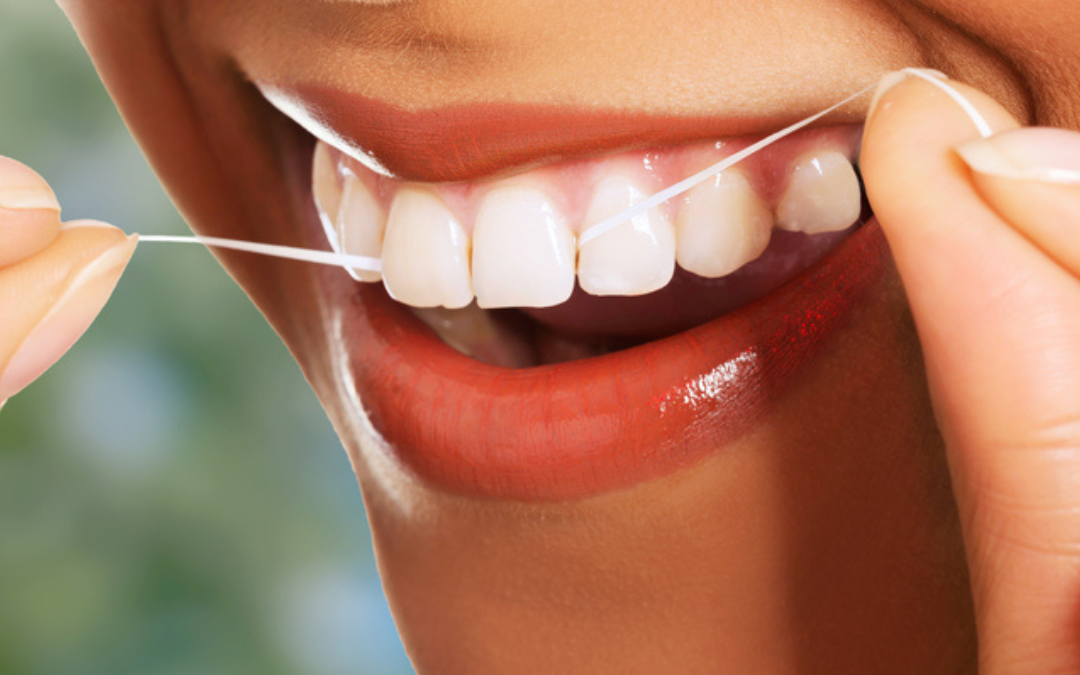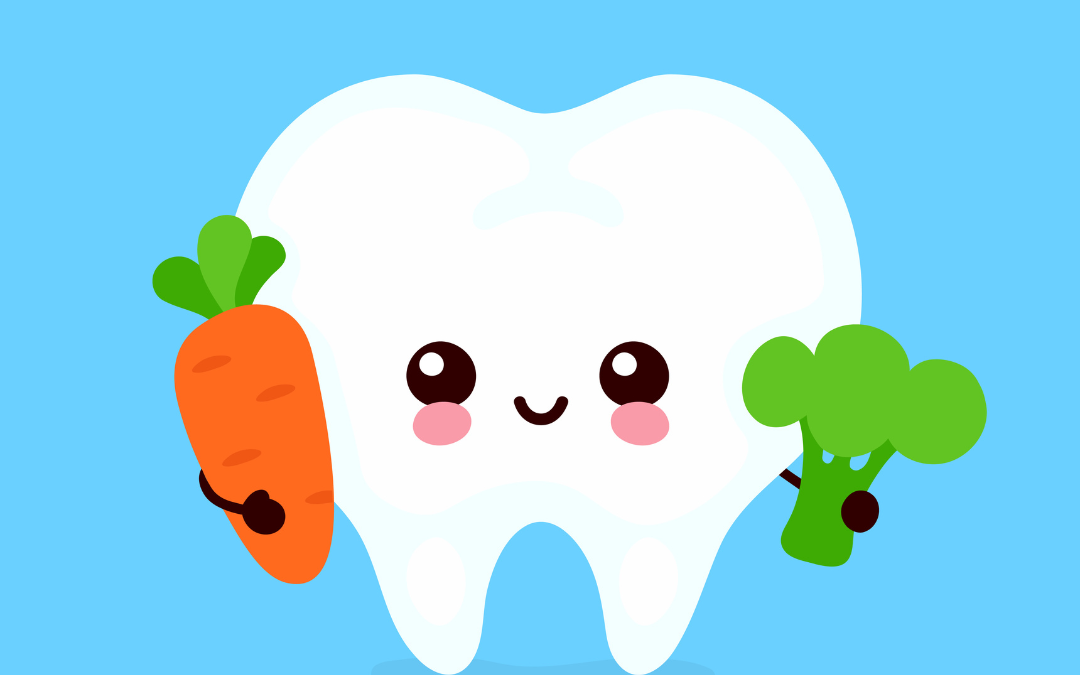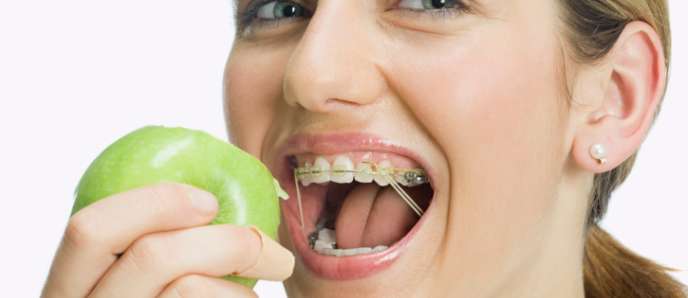Good oral health means more than a nice smile and fresh breath – though those are both benefits. Oral health is important to overall health. Poor oral health has been linked to diabetes, heart disease and stroke. Here are four simple things you can do to help keep your mouth strong and healthy.
1. Brushing
Requiring only a toothbrush, toothpaste, and two minutes of your time, brushing your teeth is an easy way to keep your whole body healthy.
2. Flossing
Brushing misses 40 percent of your teeth’s surfaces, so it’s important to clean between your teeth. First, choose your tool – tiny brushes, a dental pick or floss. For some flossing can be tricky at first. Here are some tips.
Get the right amount
Start with 18 inches of floss. That’s one standard keyboard, three six-inch sub sandwiches, or a two-an-a-half-pound salmon. Use whichever you want to measure, but just know that the salmon may be slippery.
Wrap it right
Wrap floss around each of your middle fingers (yes, middle fingers can be used for a variety of things).
Let the flossing begin
Hold the floss between your thumbs and index fingers and insert between two teeth. Curve the floss into a “C” shape around each tooth. Finish by moving the floss up and down. Don’t forget to show your back molars some flossing love, too!
Feel the difference
If you are new to flossing, try these steps twice a day for three days straight and see if you notice a difference in how your gums look and feel. Check out this 10-day flossing challenge to receive more tips and watch a video on how to floss.
3. Smart snacking
The less time food spends on your teeth, the better. Frequently grazing throughout the day, especially on sugars and carbs, causes acid attacks that can last up to 20 minutes. Cutting back on snack time is not only good for your waistline – it’s also good for your mouth, giving teeth time to rest and recover so that they can do their best work.
Choose wisely
Some snacks are easier on the mouth than others, so choose wisely. Cheese, nuts and fresh fruits and vegetable are tooth-healthy foods. If it’s sugar you crave, you’re not alone—cavity-causing bacteria in your mouth loves sweets too. Try to steer clear, but if you sometimes can’t quite pass up those Krispy Kremes, do your best to brush your teeth soon after or, if brushing is not possible, swish your mouth with water.
4. Oral health checkups
Regular oral health checkups are just as important as annual physicals – they not only keep your mouth healthy, but are important for keeping your whole body in tip top shape.
The single best way to save money on dental care is to go get dental care – now! The tartar on your teeth that can lead to cavities, receding gums and gum disease can only be removed in the dental office. Each cavity you prevent through regular oral health checkups, brushing, flossing, and reducing time food spends on your teeth, can save you nearly $2,000 in later treatment!
Unleash the power of good oral health. Learn more at TheMightyMouth.org.

The Linkage Between Oral Health and Diabetes: A Comprehensive Guide (#TopicThursday)
The Linkage Between Oral Health and Diabetes: A Comprehensive Guide Maintaining good oral health is essential for one's own well-being, and it becomes even more crucial for individuals with diabetes. The relationship between diabetes and oral health is shared, with...

Floss Friday! – Effective Tips for Flossing (Sept. 15)
Floss Friday! - Effective Tips for Flossing (Sept. 15) Flossing is a crucial component of maintaining good oral hygiene. It helps remove plaque and food particles from between teeth and along the gumline, where a toothbrush might not reach effectively. Here are some...

Tuesday Topic! (Sept. 12, 2023)
Tuesday Topic! (Sept. 12, 2023) Maintaining good oral health involves not only proper dental hygiene practices but also making healthy food choices. Here's a list of foods that can promote oral health: Crunchy Fruits and Vegetables: Foods like apples, carrots, celery,...

